CBD for Lung Diseases: A Comprehensive Guide
Today, we dive into the world of CBD for Lung Diseases. In the ever-evolving world of natural health remedies, Cannabidiol (CBD), a compound found in the Cannabis sativa plant, is emerging as a promising solution for various lung conditions. This article explores the potential benefits, uses, and mechanisms of CBD for lung diseases.
Estimated reading time: 10 minutes
- Understanding CBD and Its Relevance to Lung Health
- CBD's Mechanism of Action in Lung Diseases
- What are lung diseases?
- Potential Benefits of CBD in Treating Lung Diseases
- CBD Forms and Administration for Lung Diseases
- Best CBD oil for lung disease
- Benefits of vaping CBD for lung disease
- Potential Benefits of Vaping CBD for Lung Disease
- Conclusion
- The Real CBD for Lung disease

Understanding CBD and Its Relevance to Lung Health
CBD is one of over a hundred cannabinoids present in the cannabis plant. Unlike its counterpart THC, CBD is non-psychoactive, meaning it does not produce the ‘high' associated with cannabis use. This characteristic makes it an appealing option for individuals looking for relief from inflammation, pain, and other symptoms without the mind-altering effects of marijuana or certain pharmaceutical drugs.
CBD's Mechanism of Action in Lung Diseases
CBD interacts with the body's endocannabinoid system (ECS), which plays a crucial role in regulating a variety of functions including sleep, appetite, pain, and immune system response. The body produces endocannabinoids, which are neurotransmitters that bind to cannabinoid receptors in the nervous system. CBD's influence on the ECS helps reduce inflammation and interact with neurotransmitters, making it a potential therapeutic agent in lung diseases characterized by inflammation.
What are lung diseases?
Lung diseases are medical conditions that affect the lungs, which are part of the respiratory system in the human body. The lungs are responsible for breathing, a process that supplies oxygen to the blood and removes carbon dioxide. When lung diseases occur, they can disrupt this vital process, leading to various health problems. There are several types of lung diseases, and they can be categorized into a few main groups:
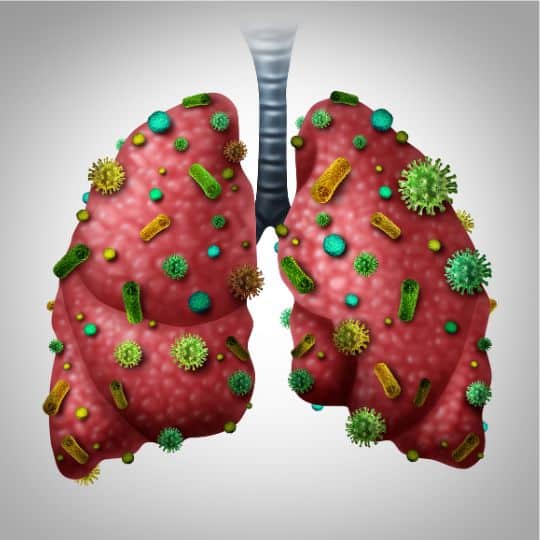
- Airway Diseases: These diseases affect the tubes (airways) that carry oxygen and other gases into and out of the lungs. They often cause a narrowing or blockage of the airways. Examples include asthma, chronic obstructive pulmonary disease (COPD), and bronchiectasis.
- Lung Tissue Diseases: These diseases affect the structure of the lung tissue. Scarring or inflammation of the tissue makes the lungs unable to expand fully (restrictive lung disease). This makes it hard for the lungs to take in oxygen and release carbon dioxide. Examples include pulmonary fibrosis and sarcoidosis.
- Lung Circulation Diseases: These diseases affect the blood vessels in the lungs. They are caused by clotting, scarring, or inflammation of these vessels. They affect the ability of the lungs to take up oxygen and to release carbon dioxide. These diseases can also affect heart function. Examples include pulmonary hypertension and pulmonary embolism.
To name a few by name:
- Asthma.
- Collapse of part or all of the lung (pneumothorax or atelectasis)
- Swelling and inflammation in the main passages (bronchial tubes) that carry air to the lungs (bronchitis)
- COPD.
- Lung cancer.
- Lung infection (pneumonia)
- Abnormal buildup of fluid in the lungs (pulmonary edema)
Common symptoms of lung diseases include shortness of breath, persistent cough, coughing up blood or mucus, pain or discomfort when breathing, and wheezing. The causes of lung diseases vary and can include smoking, environmental factors, genetics, and infections.
Treatment for lung diseases depends on the specific type of disease, its severity, and the overall health of the individual. It can range from lifestyle changes like quitting smoking and avoiding pollutants, to medications, pulmonary rehabilitation, and in severe cases, surgery or lung transplantation. Regular check-ups and consultations with healthcare providers are crucial for managing lung diseases effectively.
Potential Benefits of CBD in Treating Lung Diseases
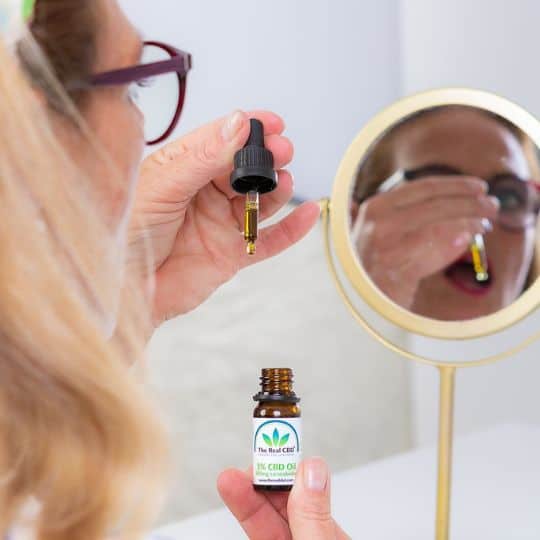
- Anti-Inflammatory Properties: Chronic inflammation plays a significant role in the progression of many lung diseases, including COPD (Chronic Obstructive Pulmonary Disease) and asthma. CBD's anti-inflammatory properties can help reduce airway inflammation, offering relief to patients.
- Analgesic Effects: Many lung conditions are accompanied by pain. CBD's analgesic properties can help alleviate this discomfort, improving the quality of life for sufferers.
- Antioxidant Effects: Oxidative stress contributes to the development and progression of lung diseases. CBD's antioxidant properties can help protect the lungs from the damage caused by free radicals.
- Immune System Modulation: CBD can modulate the immune system, potentially benefiting conditions like pulmonary fibrosis, where the immune system plays a role in lung tissue damage.
- Anxiolytic Effects: Many patients with lung diseases experience anxiety. CBD's anxiolytic effects can help manage this anxiety, which is especially beneficial for patients with conditions like COPD, where stress can exacerbate symptoms.
Some positive results have come from animal studies. A 2015 study on guinea pigs showed CBD helped open up the bronchial passages. Some researchers believe it's possible it could help people with COPD breathe easier and keep blood oxygen levels from falling, too. In addition, a 2014 study on mice with damaged lungs showed CBD helped lower inflammation and improved lung function.
CBD Forms and Administration for Lung Diseases

CBD is available in various forms, including oils, tinctures, capsules, edibles, and topical solutions. Inhalation through vaping is another popular method, though it may not be suitable for individuals with certain lung conditions. The choice of CBD product and the mode of administration depend on the individual's condition, preferences, and lifestyle.
Dosage and Safety Considerations
Determining the right dosage of CBD oil is critical. It varies depending on factors like body weight, the condition being treated, the individual's body chemistry, and the concentration of CBD in each product. It is advisable to start with a low dose and gradually increase it, monitoring the effects.
While CBD is generally considered safe, it can cause adverse reactions in some people, such as dry mouth, diarrhea, reduced appetite, drowsiness, and fatigue. CBD can also interact with other medications. Consulting with a healthcare professional before using CBD, especially for lung diseases, is essential.
Read more about CBD side effects here
More about CBD from our other blogs
Best CBD oil for lung disease
Selecting the best CBD oil for lung disease involves considering several factors to ensure safety and effectiveness. While CBD oil has been studied for its potential health benefits, including anti-inflammatory and anxiolytic effects, it's crucial to understand that it is not a cure for lung diseases but may help manage some symptoms. Here are key points to consider when choosing CBD oil for lung disease:
1. Quality and Purity

- Lab-Tested: Look for CBD oils that have been independently lab-tested. Lab reports should confirm the CBD content and check for contaminants like heavy metals, pesticides, and moulds.
- Full-Spectrum vs. Isolate: Full-spectrum CBD oils contain a range of cannabinoids and terpenes from the cannabis plant, which might offer enhanced benefits due to the “entourage effect.” However, for those concerned about trace amounts of THC, CBD isolate products are THC-free.
2. Source of Hemp
- Organically Grown: Opt for CBD oil derived from organically grown hemp to minimize exposure to harmful chemicals.
- Origin: Consider the geographical source of the hemp. Regions with strict agricultural regulations tend to produce higher quality hemp.
3. Concentration and Dosing
- Concentration: CBD oils come in various concentrations. Starting with a lower concentration and gradually increasing it can help gauge how your body responds.
- Dosage: It's important to start with a low dose and gradually increase it, monitoring the effects. The appropriate dosage can vary based on individual factors like weight, the severity of the condition, and the concentration of CBD.
4. Delivery Method
- Sublingual Use: CBD oil is commonly taken sublingually (under the tongue) for efficient absorption. It is a preferable method for lung disease as it doesn't involve inhalation.
5. Carrier Oil
- Type of Carrier Oil: CBD is often infused in a carrier oil like coconut oil, MCT oil, or hemp seed oil. The choice of carrier oil can affect absorption and tolerability.
Benefits of vaping CBD for lung disease

Vaping CBD (Cannabidiol) for lung disease is a topic that has garnered interest due to the potential benefits of CBD. However, it is important to approach this subject with caution, particularly because vaping involves the lungs, which are directly affected by lung diseases. Here are some potential benefits, along with important considerations:
Potential Benefits of Vaping CBD for Lung Disease
- Rapid Relief: Vaping CBD allows for quick absorption into the bloodstream through the lungs, providing faster relief from symptoms compared to other methods like oral ingestion. This can be beneficial for sudden flare-ups of symptoms like pain or anxiety.
- Dosage Control: Vaping enables precise control over the amount of CBD consumed. This can be helpful for lung disease patients who need to manage their symptoms effectively throughout the day.
- Reduced Inflammation: CBD is known for its anti-inflammatory properties. For lung conditions characterized by inflammation, such as COPD or asthma, CBD could potentially offer relief by reducing inflammation in the airways.
- Anxiety Relief: Many individuals with lung diseases experience anxiety, particularly during flare-ups of their condition. CBD has been noted for its anxiolytic effects, which can help in managing anxiety.
Important Considerations and Cautions

- Potential Lung Irritation: Vaping involves inhaling substances into the lungs. For individuals with lung disease, this can potentially irritate the lungs further, especially if the vaping solution contains additives or contaminants.
- Lack of Regulation: The CBD market, especially vaping products, can be unregulated and inconsistent. This lack of regulation can lead to products that are of low quality or contain harmful additives.
- Research is Limited: There is limited research specifically on vaping CBD for lung diseases. Much of the evidence for CBD's benefits comes from studies on oral or topical use.
- Medical Advice is Crucial: It is essential for individuals with lung disease to consult with a healthcare provider before starting any new treatment, including vaping CBD. This is to ensure it doesn't interfere with existing treatments or worsen their condition.
Conclusion
CBD holds promise as a natural, effective treatment for various lung diseases, owing to its anti-inflammatory, analgesic, antioxidant, and immunomodulatory properties. While more research is needed to fully understand its benefits and mechanisms, current evidence suggests CBD could be a valuable addition to the treatment regimen for lung disease sufferers.
The Real CBD for Lung disease
-
 CBD Sleep Gummies€29.00
CBD Sleep Gummies€29.00 -
 Multivitamin gummies€15.00
Multivitamin gummies€15.00 -
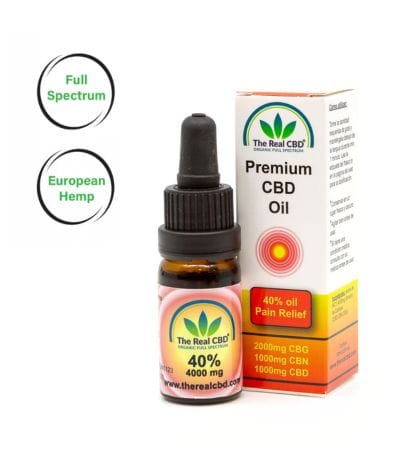 40% Pain Relief oil€179.00
40% Pain Relief oil€179.00 -
Product on sale
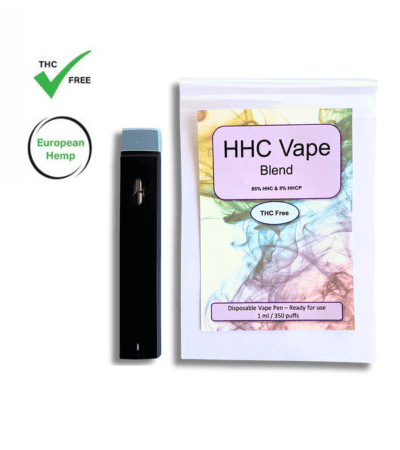 HHC VapeOriginal price was: €55.00.€35.00Current price is: €35.00.
HHC VapeOriginal price was: €55.00.€35.00Current price is: €35.00. -
Product on sale
 CBD Vape – Broad Spectrum€30.00 – €45.00
CBD Vape – Broad Spectrum€30.00 – €45.00 -
 CBD gummies – 25mg CBD€36.00
CBD gummies – 25mg CBD€36.00 -
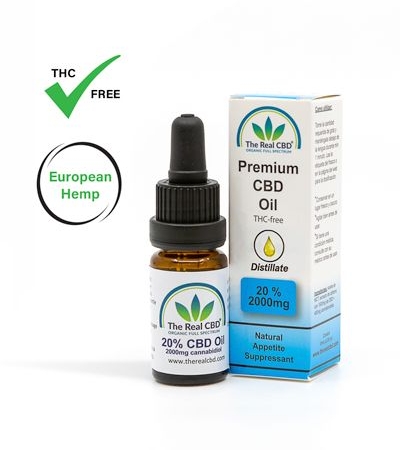 20% CBD oil – Distillate€92.00
20% CBD oil – Distillate€92.00 -
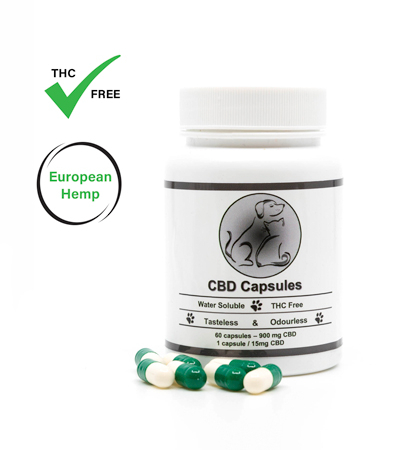 5% CBD Capsules for Pets€59.00
5% CBD Capsules for Pets€59.00 -
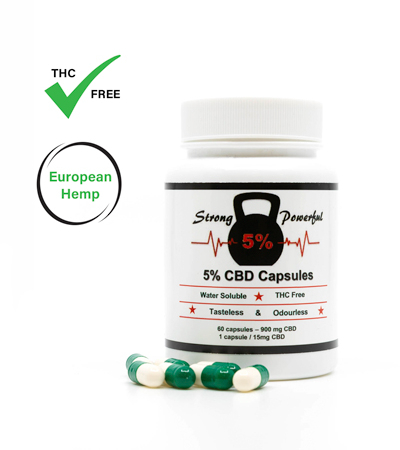 CBD Capsules for Athletes€59.00
CBD Capsules for Athletes€59.00 -
Product on sale
 CBD Gummy Bears – 5mg CBDOriginal price was: €19.50.€14.50Current price is: €14.50.
CBD Gummy Bears – 5mg CBDOriginal price was: €19.50.€14.50Current price is: €14.50. -
 CBD Vegan gummies – 15mg CBD€29.00
CBD Vegan gummies – 15mg CBD€29.00 -
 CBD 3 for 2 pack€58.00 – €170.00
CBD 3 for 2 pack€58.00 – €170.00

I am a certified expert in Medicinal Cannabis. We are all about giving correct and trustworthy information. We know how important it is to learn about CBD and cannabis, which is why we want to be your go-to source for trustworthy information. We help you improve your health by using our knowledge and experience as a starting point.














Leave a Reply
Want to join the discussion?Feel free to contribute!